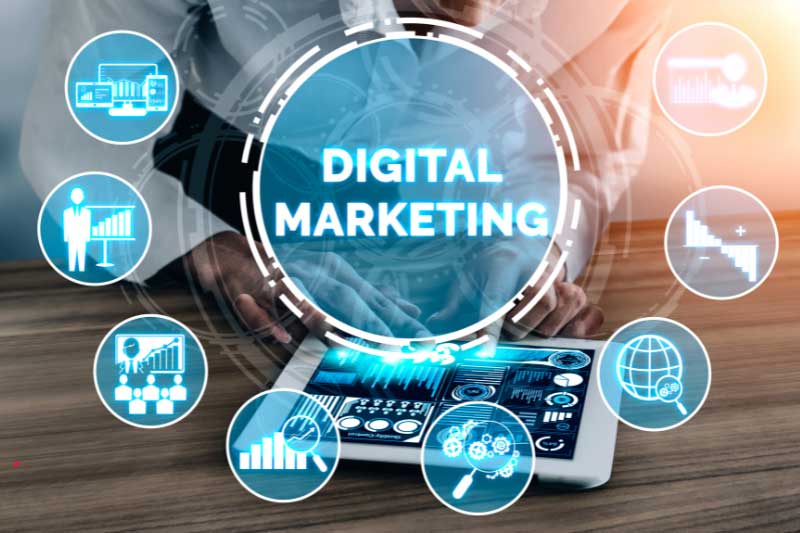Content marketing is the silent powerhouse driving brand growth and customer engagement in today’s fiercely competitive business landscape. But what makes it so indispensable? This blog post will unravel the significance of content marketing, offering insights into how it can transform your business presence and elevate your strategy to new heights. Whether you’re a seasoned marketer or just dipping your toes into the digital world, you’ll discover invaluable tips and techniques to harness the full potential of content marketing.
Why Content Marketing Matters More Than Ever
Content marketing is not just a buzzword—it’s a fundamental component of modern marketing strategies. It enables businesses to connect with their audience meaningfully, fostering trust and loyalty. Content marketing is about delivering valuable, relevant, and consistent content to attract and retain a clearly defined audience. In an era where consumers are bombarded with an overwhelming amount of information daily, standing out requires offering more than just products or services; it demands delivering value through engaging content.
Content marketing is crucial today because of its ability to build relationships. Unlike traditional advertising, which often interrupts and irritates consumers, content marketing provides information that your audience wants to consume. It helps establish your brand as a thought leader and a trusted source of information. By creating content that addresses your audience’s pain points, you can position your brand as an integral part of their lives and decision-making processes.
Furthermore, content marketing is a cost-effective strategy that delivers long-term results. While it may require an upfront investment of time and resources, the benefits compound over time. Consistent, high-quality content can improve your search engine rankings, drive organic traffic, and increase brand visibility. These elements combined create a sustainable marketing approach that continues to pay dividends long after the initial content is published.
The Core Elements of a Successful Content Strategy
To unlock the full potential of content marketing, it’s essential to have a well-defined strategy. A successful content strategy is a roadmap that guides your efforts and ensures that your content aligns with your business goals. It begins with understanding your audience’s interests, preferences, and pain points. By conducting thorough research and building detailed buyer personas, you can tailor your content to meet the specific needs of your target audience.
Another critical element of a successful content strategy is defining the goals and objectives you’re aiming to achieve. Whether it’s increasing brand awareness, generating leads, or driving conversions, having clear objectives will help you measure the success of your content marketing efforts. It’s also important to consider the types of content that resonate with your audience. From blog posts and videos to infographics and podcasts, explore different formats to see what works best for your audience.
A successful content strategy also requires a keen focus on distribution channels. Identifying where your audience spends their time online will help you deliver your content where it’s most likely to be seen and engaged. Social media platforms, email marketing, and SEO are all crucial components of an effective distribution strategy. By leveraging these channels strategically, you can maximize the reach and impact of your content.
Creating Compelling Content That Resonates
Creating compelling content is at the heart of any successful content marketing strategy. To capture and hold your audience’s attention, you need to deliver content that is both informative and engaging. Start by identifying topics that resonate with your audience. What questions are they asking? What problems are they trying to solve? Use these insights to craft content that provides valuable solutions and insights.
When it comes to writing content, clarity and simplicity are key. Use short sentences and paragraphs to ensure readability and maintain a conversational tone. Incorporate relevant examples, anecdotes, or case studies to illustrate your points and make the content relatable. Visual elements like images, videos, and infographics can enhance the overall experience and keep your audience engaged.
Additionally, storytelling is a powerful tool in content marketing. Humans are naturally drawn to stories; weaving a narrative into your content can create an emotional connection with your audience. Whether you’re sharing a customer’s success story or highlighting the evolution of your brand, stories make your content more memorable and impactful.
Leveraging SEO to Amplify Content Reach
Search Engine Optimization (SEO) plays a vital role in content marketing by ensuring that your content reaches the right audience. By optimizing your content for relevant keywords, you increase the likelihood of appearing in search engine results when users search for topics related to your business. However, SEO is not just about keyword stuffing; it’s about providing valuable content that aligns with user intent.
Start by conducting keyword research to identify the terms and phrases your audience is searching for. Incorporate these keywords naturally throughout your content, including in headings, subheadings, and meta descriptions. Additionally, focus on creating high-quality content that satisfies user intent. Search engines reward content that provides value and answers users’ questions comprehensively.
Link building is another crucial aspect of SEO. Building backlinks from reputable sources can enhance your content’s authority and improve its search engine ranking. To earn valuable backlinks, reach out to industry influencers, collaborate with other businesses, and guest post on relevant websites. Remember, the goal is to create a network of quality links that reinforce the credibility of your content.
Measuring the Impact of Your Content
It’s essential to measure the impact of your content marketing efforts to ensure that they are yielding results. Establish key performance indicators (KPIs) that align with your objectives, such as website traffic, engagement metrics, lead generation, and conversion rates. Regularly analyze these metrics to gauge your content’s effectiveness and identify areas for improvement.
Google Analytics is a valuable tool for tracking website traffic and user behavior. It provides insights into which pages are performing well, how visitors discover your content, and how long they stay on your site. Use this data to identify trends and make data-driven decisions to optimize your content strategy.
Engagement metrics, such as likes, shares, comments, and time spent on a page, offer valuable insights into how your audience interacts with your content. Please pay attention to which types of content generate the most engagement and replicate their success in future efforts. Additionally, gather feedback from your audience through surveys or comments to better understand their preferences and expectations.
The Future of Content Marketing
Content marketing continuously evolves, and staying ahead of the curve is crucial for success. One of the emerging trends is the rise of video content. With platforms like YouTube and TikTok gaining immense popularity, businesses leverage video to engage and educate their audience. Incorporate video into your content strategy to cater to the growing demand for visual content.
Interactive content is another trend gaining traction. Quizzes, polls, and interactive infographics provide an engaging experience for users and encourage them to participate actively. These formats can increase the time spent on your content and foster a deeper connection with your audience.
Personalization is becoming increasingly important in content marketing. Tailor your content to your audience’s individual preferences and behaviors. Use data-driven insights to deliver personalized recommendations and offers, making your audience feel valued and understood.
Conclusion and Next Steps
Content marketing is a powerful tool that can transform your business by creating meaningful connections with your audience. By understanding its significance and implementing a well-defined strategy, you can drive engagement, build brand loyalty, and achieve your business objectives.
Remember to continually assess and refine your content strategy based on data and feedback. The digital landscape constantly changes, and staying adaptable is key to maintaining your competitive edge.
Those ready to take their content marketing efforts to the next level should consider exploring further resources and professional support. Whether attending webinars, joining industry forums, or partnering with content marketing experts, there are countless opportunities to deepen your knowledge and expertise.
Start harnessing the power of content marketing today, and watch your brand’s visibility and influence grow.








